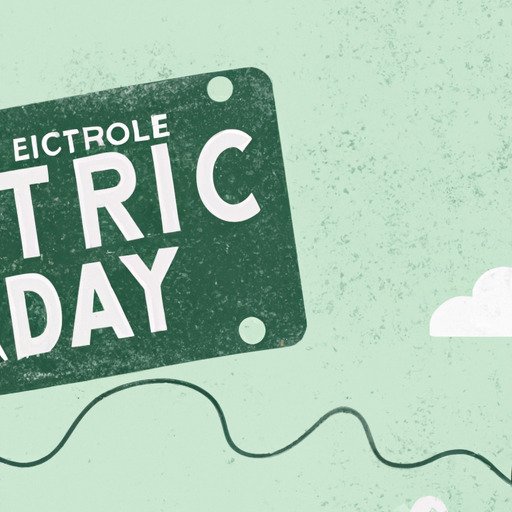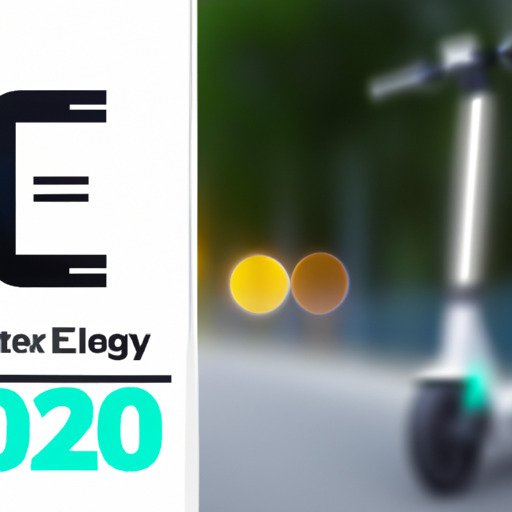
Have you ever wondered if anyone has been fined for riding an electric scooter? With the growing popularity of electric scooters as a convenient mode of transportation in many cities, it’s a question that comes to mind. Whether you’re a first-time rider or someone considering hopping on an electric scooter for your daily commute, knowing the potential consequences of breaking the rules is important. In this article, we’ll explore the topic of fines for electric scooter riders and what you need to know to stay on the right side of the law. So, if you’re curious to find out more, keep reading!
Curious to know if there have been any reported cases of people getting fined for riding electric scooters? Well, you’re in the right place! In this article, we’ll delve into the world of electric scooter fines and give you an insight into the potential legal repercussions that riders may face. Whether you’re a seasoned electric scooter enthusiast or simply someone interested in the emerging trend, understanding the rules and regulations surrounding electric scooters is essential. So, grab your helmet and get ready to explore the world of electric scooter fines because we’ve got all the details waiting for you!

Overview of electric scooters
Electric scooters have become increasingly popular as a mode of transportation in recent years. With their compact size, affordability, and eco-friendly nature, they offer a convenient alternative to traditional methods of getting around in urban areas. However, as with any new mode of transportation, there are several legal and safety considerations that riders need to be aware of.
What are electric scooters?
Electric scooters, also known as e-scooters, are small, motorized devices that are powered by a rechargeable battery. They typically have two wheels and a platform on which the rider stands. Electric scooters can reach speeds of up to 15 to 20 miles per hour, making them a fast and efficient means of transportation for short distances.
Benefits of electric scooters
Electric scooters offer several benefits to riders and the environment. Firstly, they are an eco-friendly alternative to cars and motorcycles as they produce zero emissions. This not only helps reduce air pollution but also contributes to a decrease in noise pollution. E-scooters are also compact and easy to park, making them a convenient option for crowded urban areas. Additionally, they are more affordable than other modes of transportation, such as cars or motorcycles, and require minimal maintenance.
Rise in popularity
The popularity of electric scooters has skyrocketed in recent years. Many cities around the world have embraced the concept of shared electric scooter services, allowing users to rent e-scooters for short trips. Companies like Lime and Bird have become household names, offering convenient and accessible transportation options. The rise in popularity can be attributed to the convenience and affordability of electric scooters, as well as the increasing awareness of environmental issues.
Legal regulations regarding electric scooters
While electric scooters provide numerous advantages, it is essential for riders to familiarize themselves with the legal regulations surrounding their use. Failure to adhere to these regulations can result in fines and legal consequences.
Local laws and restrictions
The regulations concerning electric scooters vary from country to country and even among different municipalities. Some cities have embraced e-scooters and have established dedicated bike lanes and parking areas for them, while others have imposed strict restrictions or outright bans. It is crucial for riders to research and understand the local laws and regulations before riding an electric scooter in any given area.
Age restrictions
Another important consideration is the age restrictions imposed on electric scooter riders. Many jurisdictions require riders to be at least 16 years old to legally operate an e-scooter. Some places may even require riders to possess a valid driver’s license or a special permit. It is important to check the specific age requirements in your area to avoid potential fines.
Helmet requirements
Helmet requirements also play a significant role in the legal regulations surrounding electric scooters. In many places, riders are required to wear helmets while operating electric scooters for safety reasons. Failure to wear a helmet can result in fines and may compromise the rider’s safety in the event of an accident. Riders should always prioritize their safety by wearing a proper helmet.

Cases of fines for riding electric scooters
While electric scooters have gained popularity, there have been numerous reported cases of fines and legal consequences for riders who fail to follow the regulations.
Publicly reported fines
In several cities, fines have been imposed on electric scooter riders who violate traffic laws or fail to comply with local regulations. These fines can vary in severity, ranging from minor infractions to more significant penalties, depending on the offense committed. Some of the common violations that have resulted in fines include riding on sidewalks, speeding, and riding without a helmet.
Violation of traffic laws
Electric scooters are subject to the same traffic laws as other vehicles on the road. This means that riders must obey traffic signals, yield to pedestrians, and adhere to speed limits. Failure to follow these traffic laws not only puts the rider at risk but also increases the likelihood of fines or other legal consequences.
Penalties imposed
The penalties imposed for riding an electric scooter can vary depending on the severity of the offense and the local regulations. In some cases, riders may receive a warning for a first-time offense, while subsequent violations may result in fines. The amount of the fines can range from a few dollars to several hundred dollars, depending on the jurisdiction. In extreme cases, repeat offenders may face more severe consequences, including the suspension of their driver’s license.
Factors affecting the likelihood of fines
Several factors can influence the likelihood of fines being imposed on electric scooter riders.
Enforcement by law enforcement agencies
The level of enforcement by law enforcement agencies can vary significantly from one jurisdiction to another. Some cities may have dedicated units or officers responsible for enforcing electric scooter regulations, while others may have a more relaxed approach. The presence of law enforcement officers patrolling the streets can act as a deterrent for riders, reducing the likelihood of fines.
Awareness and education campaigns
Public awareness and education campaigns play a crucial role in preventing fines for electric scooter riders. By informing riders about the regulations and potential legal consequences, these campaigns can promote responsible and legal scooter use. When riders are educated about the rules and safety requirements, they are less likely to engage in behaviors that can result in fines.
Geographical variations
Geographical variations can also impact the likelihood of fines for electric scooter riders. As previously mentioned, different cities and municipalities have different regulations and enforcement policies. Understanding the specific regulations and cultural norms of a particular area is crucial for avoiding fines when riding an electric scooter.

Controversies surrounding electric scooters
Despite their popularity, electric scooters have also generated controversies and concerns, particularly in crowded urban areas.
Conflicts with pedestrians
One of the main controversies surrounding electric scooters is the potential for conflicts with pedestrians. In some cases, riders have been accused of riding recklessly, endangering pedestrians in crowded areas such as sidewalks and pedestrian-only zones. These conflicts have led to calls for stricter regulations and enforcement to ensure the safety of pedestrians and riders alike.
Traffic congestion
Another concern related to electric scooters is the potential for increased traffic congestion. With the rise in popularity of shared electric scooter services, there has been an influx of scooters on the streets, especially in densely populated areas. This has led to complaints about overcrowded sidewalks and bike lanes, as well as issues with parking and scooter clutter.
Safety concerns
Safety is a significant concern for electric scooter riders. The compact and lightweight design of electric scooters makes them susceptible to accidents and collisions with other vehicles or objects on the road. Additionally, some riders may not have the necessary experience or training to handle these vehicles properly, leading to an increased risk of accidents and injuries.
Initiatives to prevent fines for electric scooter riders
To prevent fines and promote safe electric scooter use, various initiatives have been undertaken.
Advocacy for clearer regulations
Advocacy groups and organizations have been pushing for clearer regulations regarding electric scooters. By establishing clear guidelines and rules for riders, it becomes easier for individuals to understand and comply with the regulations in place. Clear regulations can also help reduce confusion and disputes between riders, pedestrians, and law enforcement.
Offering safety training programs
Safety training programs can play a crucial role in preventing fines and promoting safe electric scooter use. These programs can educate riders about traffic laws, proper riding techniques, and the importance of wearing safety gear. By equipping riders with the necessary knowledge and skills, these programs can help reduce accidents and violations, leading to fewer fines.
Improving infrastructure for scooters
Improving infrastructure for electric scooters is another important step in preventing fines for riders. Dedicated bike lanes, parking areas, and charging stations can help create a safer environment for electric scooter riders. By providing convenient and accessible infrastructure, riders are more likely to adhere to regulations and avoid fines.

Legal consequences of fines
Understanding the legal consequences of fines for electric scooter riders is crucial.
Effects on driving records
In many jurisdictions, fines for electric scooter violations can result in points being added to the rider’s driving record. Accumulating too many points within a certain period can lead to the suspension or revocation of the rider’s driver’s license. It is essential for riders to understand the potential impact that fines may have on their driving privileges.
Impact on insurance premiums
Fines for electric scooter violations can also have an impact on insurance premiums. Insurance companies may view riders with a history of violations as high-risk, resulting in increased premiums. It is important for riders to be aware of this potential consequence and strive to maintain a clean driving record to avoid unnecessary financial burdens.
Appealing fines
If a rider believes they have been unfairly fined for an electric scooter violation, they have the right to appeal the fine. This process typically involves submitting a written statement explaining the circumstances surrounding the violation and providing any supporting evidence. It is important for riders to familiarize themselves with the appeals process in their jurisdiction to ensure their rights are protected.
Examples of fines for electric scooter riders
Numerous cases of fines for electric scooter riders have been reported around the world.
Specific cases and fines
In some cities, riders have been fined for riding electric scooters on sidewalks, exceeding speed limits, and not wearing helmets. These fines can range from $25 to $500, depending on the offense and the jurisdiction. Repeat offenders or those who engage in more dangerous behaviors may face more severe fines or legal consequences.
Legal actions and outcomes
In some instances, riders have challenged fines or taken legal action against municipalities or companies providing shared electric scooter services. These legal actions often revolve around the legality of certain regulations or the responsibility of the companies in ensuring the safety of riders. The outcomes of these legal actions have varied, with some resulting in the dismissal of fines or changes to existing regulations.
Public reaction
The public reaction to fines for electric scooter riders has been mixed. While some argue that fines are necessary to ensure the safety of riders and pedestrians, others believe they are excessive and unnecessary. The debate surrounding fines for electric scooters highlights the need for clear and well-balanced regulations that prioritize safety while also accommodating the needs of riders.

Comparison with other modes of transport
Electric scooters offer several advantages compared to other modes of transportation.
Comparison with bicycles
Electric scooters provide a faster and more convenient option for short-distance travel compared to bicycles. With the assistance of an electric motor, riders can cover longer distances without exerting as much physical energy. Additionally, electric scooters can be easily folded and carried, making them a more portable option for commuting.
Comparison with motorcycles
Compared to motorcycles, electric scooters are generally more affordable and easier to operate. They require less maintenance and do not require riders to possess a special license in many jurisdictions. Electric scooters also have a lower environmental impact, as they produce zero emissions.
Environmental impact
One key advantage of electric scooters over traditional vehicles is their minimal environmental impact. Electric scooters produce zero emissions, reducing air pollution and contributing to a cleaner environment. As cities around the world strive to reduce their carbon footprint, electric scooters provide a greener transportation option.
Conclusion
In conclusion, fines for riding an electric scooter are a reality that riders must be aware of. Understanding the local laws and regulations, as well as practicing safe and responsible scooter use, can help avoid the potential legal consequences of non-compliance. It is also essential for riders to support initiatives aimed at clarifying regulations, providing safety training programs, and improving infrastructure for electric scooters. By adhering to regulations and promoting responsible scooter use, riders can help ensure a safe and enjoyable experience for everyone on the road.























